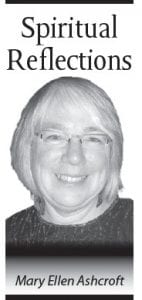“How was your trip?” I asked a retired woman in a class I teach in St. Paul. Isabelle and her husband John had just returned from five weeks in South America.
“It was incredible,” she answered and spoke about Peru, Bolivia, Chile, Argentina, and a cruise around Cape Horn.
“John and I,” Isabelle continued, “are very fortunate to have the means, the time and the health to travel.” Her gratitude lessened my envy a bit. She mentioned trips to Europe, Asia, and New Zealand.
“So many people told us we would love South America,” Isabelle continued. “But neither of us had any desire to go. We finally realized… and I feel really dumb admitting this… that we had ‘written off’ South America because of our earlier life experiences.”
“What do you mean?” I asked.
“Well, John and I are both from San Diego, close to the border. We had each been to Tijuana and a few other places as we were growing up.” She paused. “We realized that we had assumed the whole of central and South America was like Tijuana!”
We laughed. What a great example of human ability to make embarrassing assumptions, ones that in retrospect seem limiting, even silly. Idioms abound for this: “Judging a book by its cover.” “Cutting off your nose to spite your face.” “Throwing the baby out with the bathwater.”
A few hours after this conversation I was still mulling it over. I wondered: how many of us keep ourselves from good things—great adventures, love, God—because we allow bad (or simply limited) experiences to prejudice us at levels of which we may be unaware?
And how do we get over our limited assumptions? Isabelle and John had finally allowed themselves to be persuaded by friends who told them they’d love South America. But it was only on their trip to South America that they could stop to wonder, “This waterfall…. this culture… this mountain range… this food… is so great! Why have I kept myself from this before?”
And only after more pondering and a few conversations did they realize the embarrassing truth—they had judged a continent based on their bad experiences of a few border towns.
“How many people,” I found myself wondering, “who have experienced some unsavory ‘border towns’ of faith react as Isabelle and John did?”
Heaven knows bad experiences of religion are almost infinite: fear-mongering preachers, abusive clergy, simple minded evangelists, hypocritical uncles, judgmental aunts, churches that seem to take from the poor and give to the rich, self-righteous church members, etc. And that’s not even mentioning the way religion has been used and misused throughout history to uphold the power of the powerful, to kill those who disagree, to cover imperialist greed with a cloak of pious respectability.
But what if our bad experiences of religion and faith are more like a day trip to Tijuana? What if we are judging the whole of religion and faith from a raunchy taco and a plastic doll with frilly skirts?
What would it take for us to be willing to step beyond those limiting experiences and book a trip to South America? We would certainly still encounter some bad tacos and cheap souvenirs, but there would also be great adventures, eye-opening cultural experiences, lovely waterfalls, and amazing mountains.
A crucial scene In C.S. Lewis’ book The Last Battle focuses on a small hut. From the outside, the hut seems to be a cramped, smelly prison into which characters are thrown. Some dwarves are pushed through the door. Then Lucy and Edmund (our heroes) find themselves flung inside. They expect a dark and frightening place, but find themselves in a lovely meadow with spring flowers and a brook bubbling past. As they explore the beauty, they find the dwarves huddled, convinced that they’re in a dark hut. Lucy picks some violets and holds them to a dwarf ’s face, “Smell this!” she says.
“How dare you?” the dwarf shouts. “What do you mean by shoving filthy stable litter in my face?” As they sit in their dark, the dwarves say, “They won’t take us in again.”
Many, most, all, of us carry bad experiences from the past. We build up defenses: “I will not be taken in again!” We cannot simply choose to forget our hurtful past experiences. But we can choose to diminish them, often by including new experiences, allowing for a bigger picture.
One of my great heroes, Nelson Mandela, is an example of this. Sitting on the platform during his inauguration as president of the new post-apartheid South Africa, was someone Mandela had invited—his jailer from his 27-year imprisonment on Robben Island. For most of us, that experience of prison would loom so large that getting beyond it to a place of inviting a jailer would seem impossible. For Mandela, the new possibilities, the hope, the vision of a future—he chose to allow the good to eclipse the bad.
We all have areas of life in which we are stuck, held captive by our past. A God of infinite love calls us to leave behind the bad taste of those “border towns” and join the banquet of South America. A God of new beginnings invites us to allow a fresh experience of a faith community to trump bad experiences from the past. A God of surprising grace beckons us out of that little dark hut onto a wide meadow with flowers in bloom.
Each month a member of the Cook County Ministerium will offer Spiritual Reflections. This month’s contributor is Mary Ellen Ashcroft, Vicar of Spirit of the Wilderness Episcopal Church.



Loading Comments